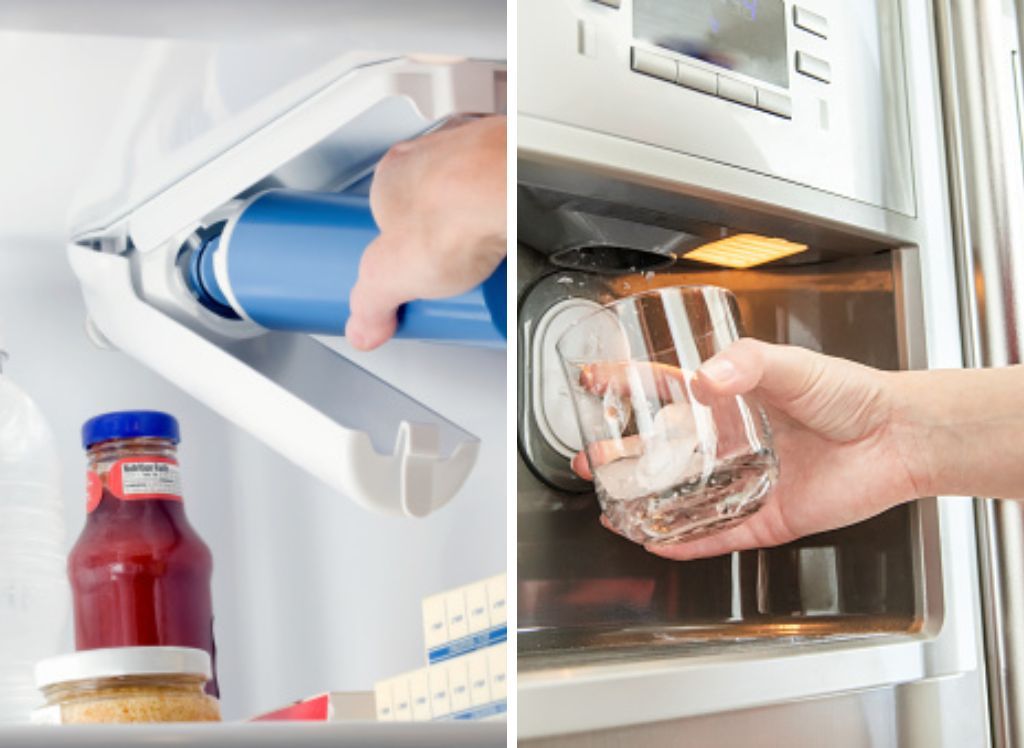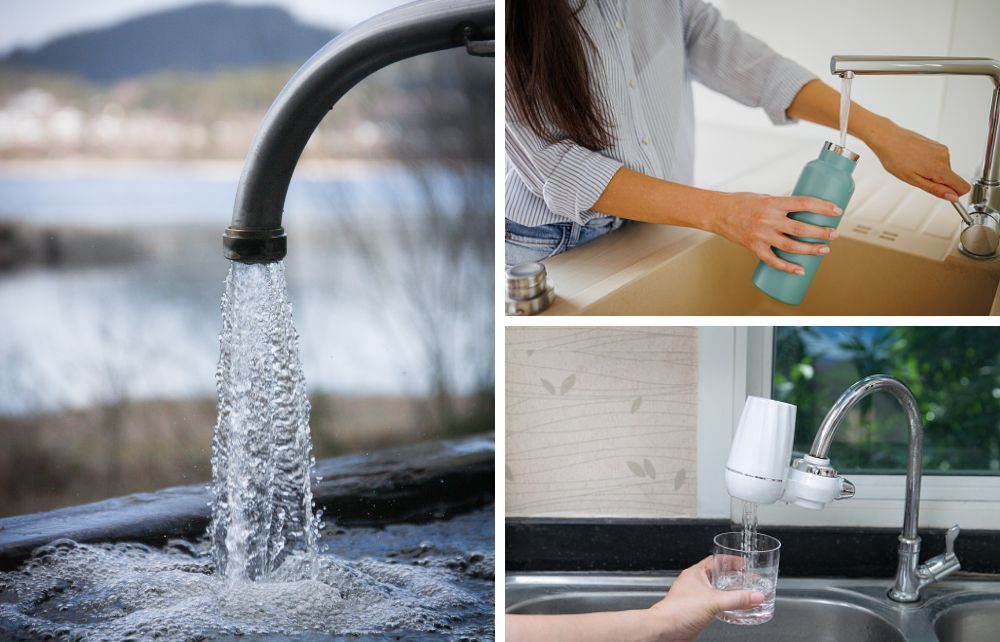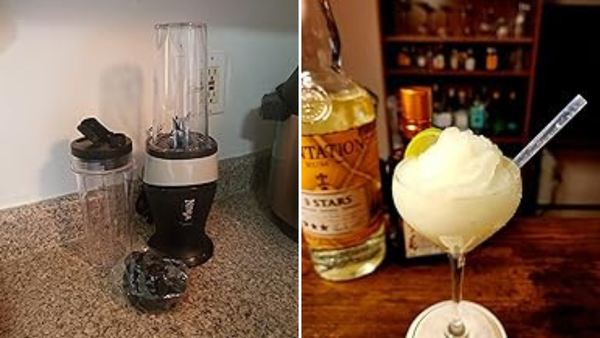Water filters are becoming increasingly popular due to their ability to remove contaminants and impurities from drinking water. However, many homeowners are wondering if fridge filters can also remove fluoride from their drinking water. Let’s take a look at the answer to this question.
Each product below was independently selected by our editors. Some may have been sent as samples for us to fiddle with, but all opinions in this article are our own. IncredibleRatings is a participant in the Amazon Services LLC Associates Program, an affiliate program that allows us to earn money linking to Amazon.com and associated websites. When you click on or make a purchase through an affiliate link on IncredibleRatings, we might get a small commission at no additional cost to you.
What Is Fluoride?
Fluoride is a mineral that occurs naturally in many sources of water, including rivers, streams and lakes. In some areas, it’s also added to tap water as part of public health efforts to reduce the incidence of tooth decay among children and adults. While fluoride helps protect teeth, too much can cause discoloration and other damage; for this reason, certain individuals may choose to reduce their fluoride intake by using a filter that removes it from drinking water.
How Fridge Filters Work
Fridge filters work by passing water through an internal filter medium which helps remove contaminants and impurities. Different types of fridge filters use different filter media. Some use activated carbon which helps reduce chlorine, sediment, and other chemicals found in tap water.
Other types of fridge filters use ion exchange resins or sediment screens to help reduce heavy metals or cysts such as Giardia or Cryptosporidium from tap water. The type of filter used in a fridge will determine how effective it is at removing specific contaminants.
Do Fridge Filters Remove Fluoride?
Unfortunately, most fridge filters do not effectively remove fluoride from tap water. This is because most refrigerator models use activated carbon for filtration, and activated carbon does not effectively remove fluoride from drinking water.
In order to effectively remove fluoride from drinking water, you need to use a reverse osmosis system, distillation unit, bone charcoal carbon filter or an activated alumina filters, which are more expensive than most fridge filters on the market today.
What Is A Reverse Osmosis System (RO)?
A reverse osmosis system is a type of water filter that uses pressure to force water through a semi-permeable membrane. This membrane blocks contaminants, including fluoride, from passing into the filtered water, leaving clean and healthy drinking water. RO systems are installed under the sink and require professional installation for optimal performance.
What Is A Distillation Unit?
A distillation unit for water filtration works by boiling contaminated water, then capturing the steam and condensing it into a purer liquid. This process helps remove bacteria, heavy metals, volatile organic compounds (VOCs), and some dissolved solids or particles. It also removes the chlorine added to municipal water systems, leaving you with drinking water that tastes fresher.
Distillation units will remove most contaminants from your tap water including fluoride; however, they are not completely foolproof and need maintenance on occasion to keep working at an optimal level. For those seeking an in-home solution for purifying their tap water without sacrificing convenience or taste, investing in a quality distillation unit is usually well worth the money spent.
What Is An Activated Alumina Filter?
Activated alumina is a highly porous form of aluminum oxide that works by attracting and trapping impurities such as fluoride in its microscopic pores. The downside to this type of filter is that it doesn't work well on hard water sources because it tends to clog easily over time when exposed to calcium or magnesium ions found in hard water sources. It's also not very effective at removing bacteria or viruses from the drinking water supply.
What Is A Bone Charcoal Carbon Filter?
Bone charcoal filters are becoming increasingly popular when it comes to drinking water filtration. These filters remove most materials from water, such as bacteria, dirt, and other pollutants. More specifically, bone charcoal filters have been proven helpful in removing fluoride from drinking water.
Studies have shown that these specially-made bones—usually derived from animal bones—are particularly useful at absorbing contaminants and pollutants like fluoride into the filter's porous material. However, it is important to note that while the removal capabilities of a bone charcoal filter can be quite powerful, it should still not be relied on solely for the purpose of eliminating unwanted substances like fluoride.
Are There Any Alternatives?
If you want to reduce the amount of fluoride in your drinking water but don’t want to invest in a more expensive filtration system, there are some alternatives you could consider.
For example, you could install a reverse osmosis faucet adapter underneath your kitchen sink which uses a special membrane to help reduce the amount of fluoride in your drinking water.
Alternatively, you could look into purchasing bottled spring water as an alternative source of drinking water which typically has much lower levels of fluoride than tap water does. However, that might not be the most environmentally effective solution.
Conclusion
So there you have it – unfortunately most fridge filters do not effectively remove fluoride from tap water but there are some alternatives available if you want to reduce the amount of fluoride in your drinking water without investing in an expensive filtration system such as installing an RO faucet adapter or purchasing bottled spring water instead of using tap water for your daily consumption needs.
With that being said, it is still important to remember that these solutions are only temporary fixes and that if you truly want to ensure that all contaminants including fluoride are removed from your drinking supply then investing in a more comprehensive filtration system such as reverse osmosis, distillation unit, activated alumina filter or bone carbon filter, is still recommended, as no other methods can guarantee 100% removal rate when it comes to removing all harmful substances present in our everyday drinkable liquids like fluorides and chlorines etcetera… Thanks for reading!
If you are in the market for a fridge filter, and not needing to worry about fluoride, check out our top picks!

You may also like:











